
Databasus previously knows as Postgresus, is a free, open source and self-hosted solution for automated PostgreSQL backups. With multiple storage options and notifications. In this step by step guide I will show you how to install Databasus on your Synology NAS using Docker and Portainer.
This guide works perfectly with the latest Databasus v3.12.2 release.
STEP 1
Please Support My work by Making a Donation.
STEP 2
Install Portainer using my step by step guide. If you already have Portainer installed on your Synology NAS, skip this STEP. Attention: Make sure you have installed the latest Portainer version.
STEP 3
Go to File Station and open the docker folder. Inside the docker folder, create two new folders and name the databasus and postgresql. Follow the instructions in the image below.
Note: Be careful to enter only lowercase, not uppercase letters.
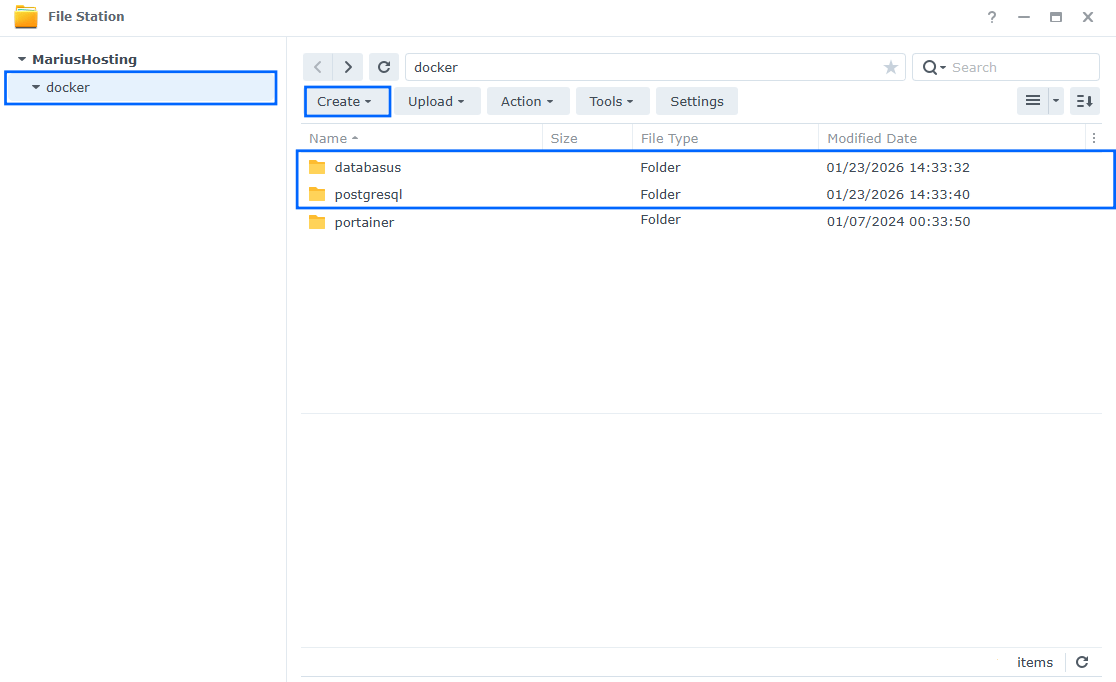
STEP 4
Log into Portainer using your username and password. On the left sidebar in Portainer, click on Home then Live connect. Follow the instructions in the image below.

On the left sidebar in Portainer, click on Stacks then + Add stack. Follow the instructions in the image below.

STEP 5
In the Name field type in postgresus. Follow the instructions in the image below.
services:
db:
container_name: PostgreSQL
image: postgres
healthcheck:
test: ["CMD", "pg_isready", "-q", "-d", "marius_DB", "-U", "root"]
environment:
POSTGRES_USER: root
POSTGRES_PASSWORD: mariushostingroot
POSTGRES_DB: marius_DB
volumes:
- /volume1/docker/postgresql:/var/lib/postgresql:rw
ports:
- 2669:5432
restart: on-failure:5
databasus:
image: databasus/databasus:latest
container_name: Databasus
healthcheck:
test: timeout 10s bash -c ':> /dev/tcp/127.0.0.1/4005' || exit 1
interval: 10s
timeout: 5s
retries: 3
start_period: 90s
ports:
- 4005:4005
volumes:
- /volume1/docker/databasus:/databasus-data:rw
restart: on-failure:5
Note: Before you paste the code above in the Web editor area below, change the value for POSTGRES_USER – root is an example for a username. You have to type in your own user.
Note: Before you paste the code above in the Web editor area below, change the value for POSTGRES_PASSWORD – mariushostingroot is an example for a password. You have to type in your own password.
Note: Before you paste the code above in the Web editor area below, change the value for POSGRES_DB and type in your own database name. marius_DB is an example for a database name. You have to type in your own database name.
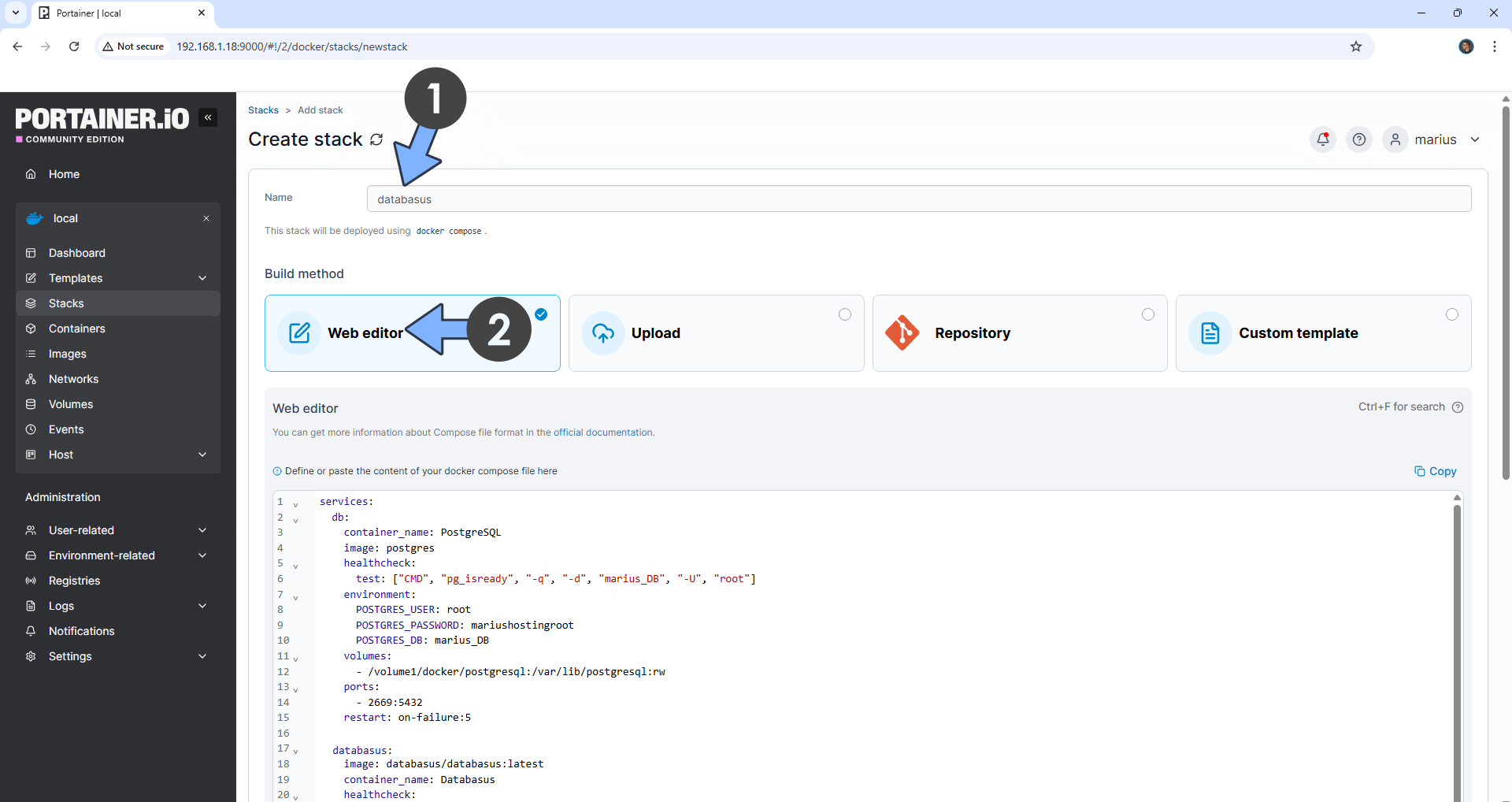
STEP 6
Scroll down on the page until you see a button named Deploy the stack. Click on it. Follow the instructions in the image below. The installation process can take up to a few minutes. It will depend on your Internet speed connection.
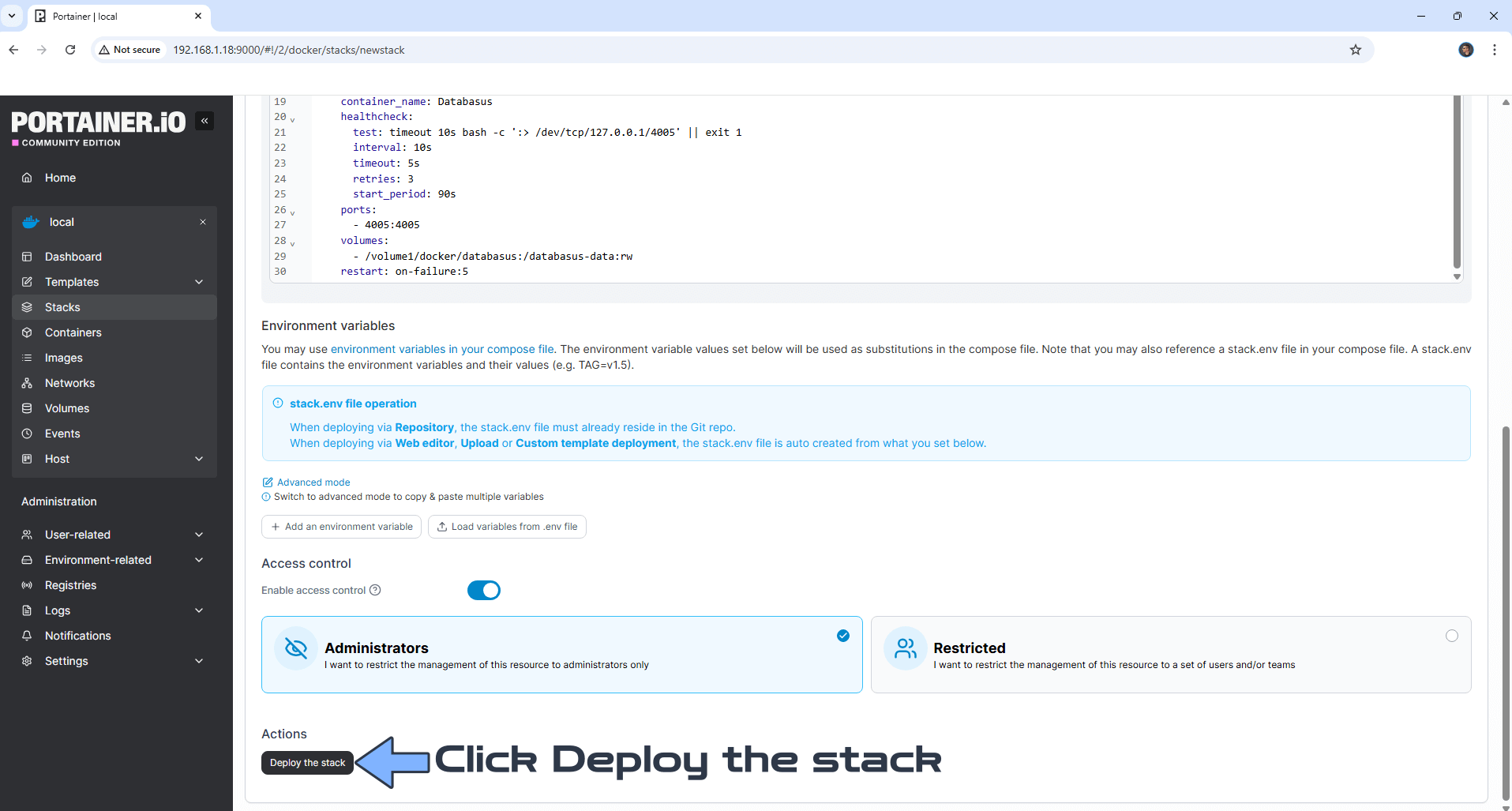
STEP 7
If everything goes right, you will see the following message at the top right of your screen: “Success Stack successfully deployed“.

STEP 8
🟢Please Support My work by Making a Donation. Almost 99,9% of the people that install something using my guides forget to support my work, or just ignore STEP 1. I’ve been very honest about this aspect of my work since the beginning: I don’t run any ADS, I don’t require subscriptions, paid or otherwise, I don’t collect IPs, emails, and I don’t have any referral links from Amazon or other merchants. I also don’t have any POP-UPs or COOKIES. I have repeatedly been told over the years how much I have contributed to the community. It’s something I love doing and have been honest about my passion since the beginning. But I also Need The Community to Support me Back to be able to continue doing this work.
STEP 9
The installation process can take up to a few seconds/minutes. It will depend on your Internet speed connection. Now open your browser and type in http://Synology-ip-address:4005 Switch the theme from light to dark. Type in your own Password then click Set Password. Follow the instructions in the image below.
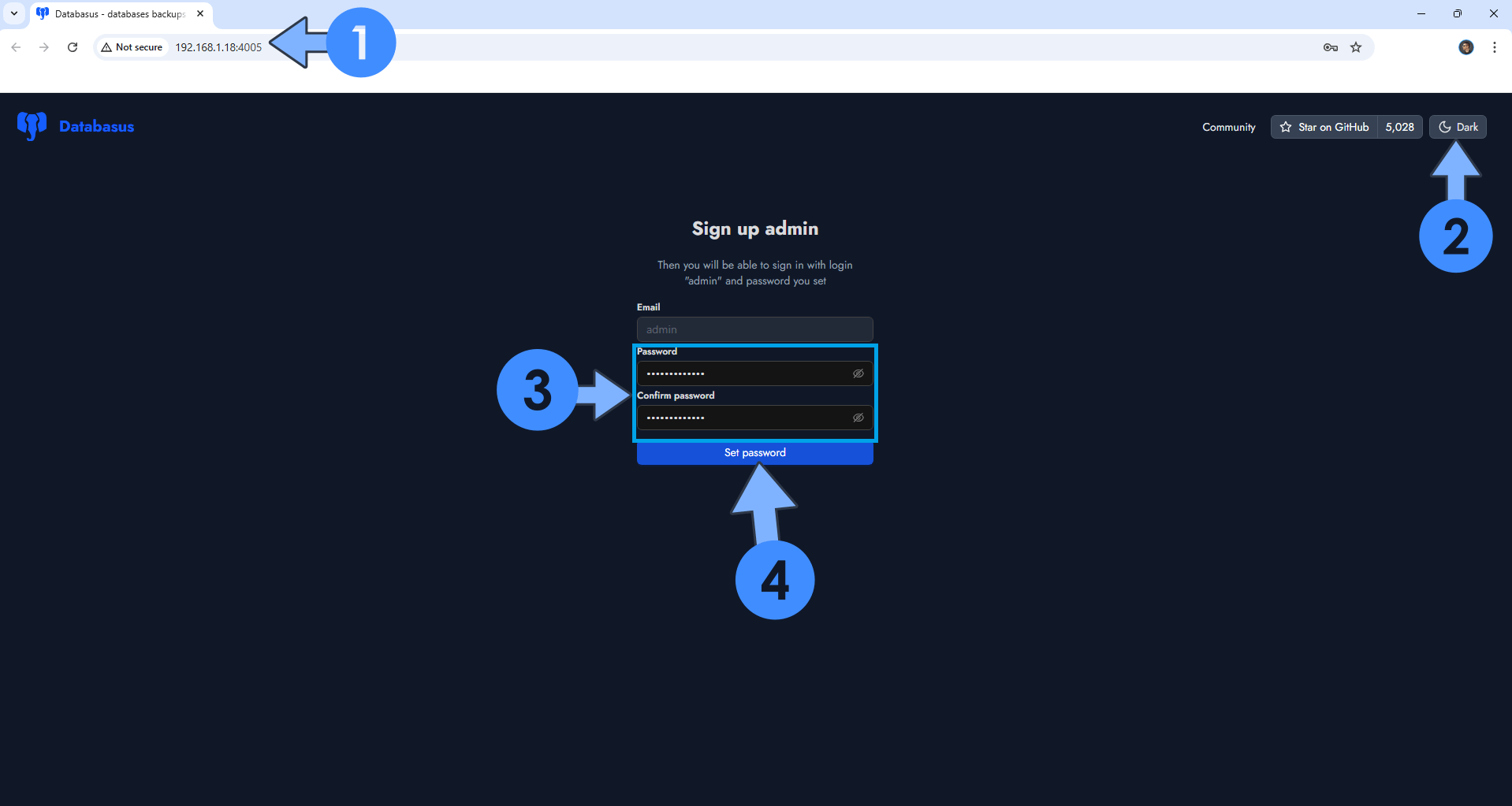
STEP 10
Click Create workspace. Type in your workspace name then click Create workspace. Follow the instructions in the image below.
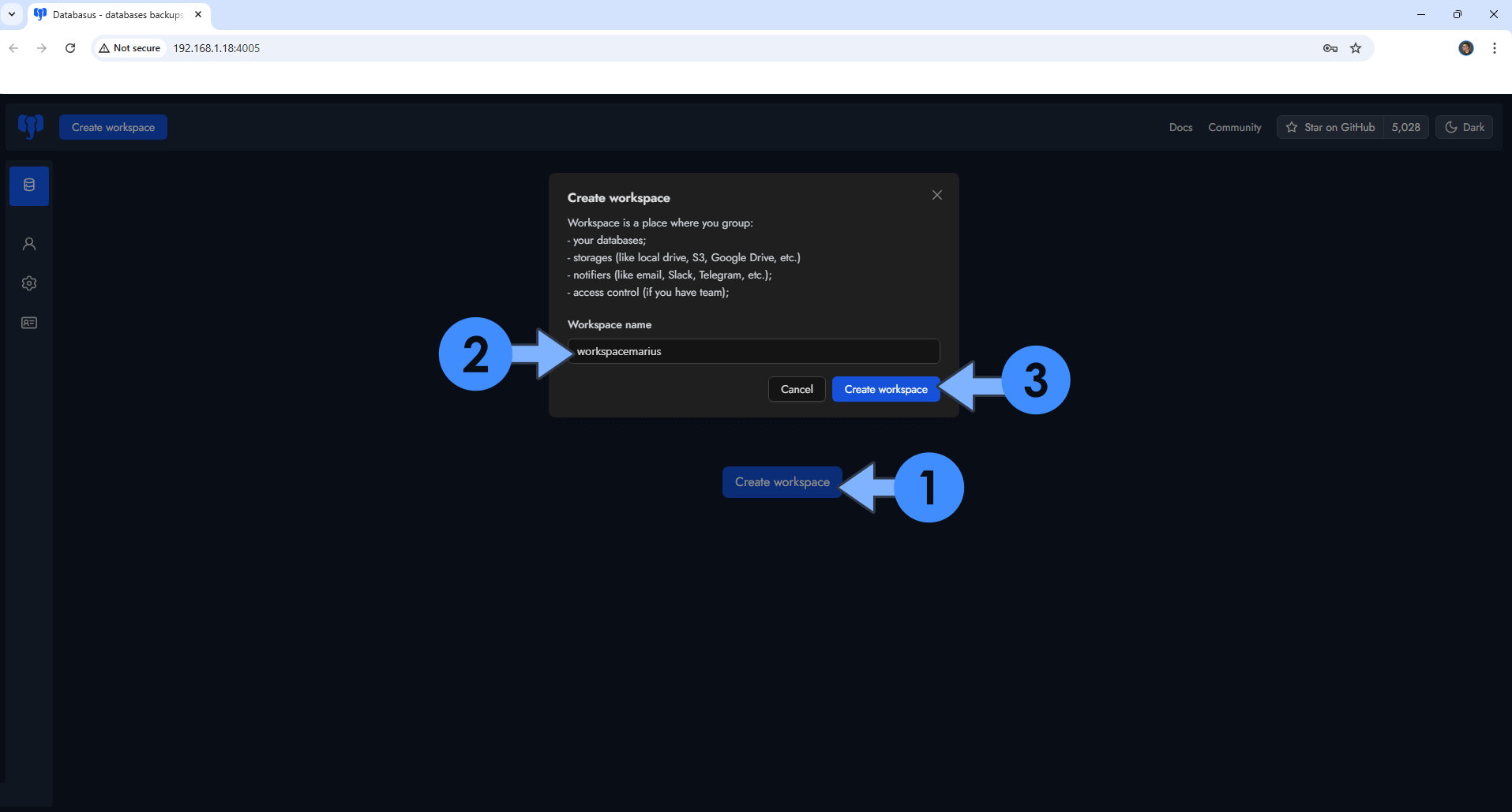
STEP 11
Click Add database. Type in a name for the database backup task. Select PostgreSQL as database type. Click Continue. Follow the instructions in the image below.
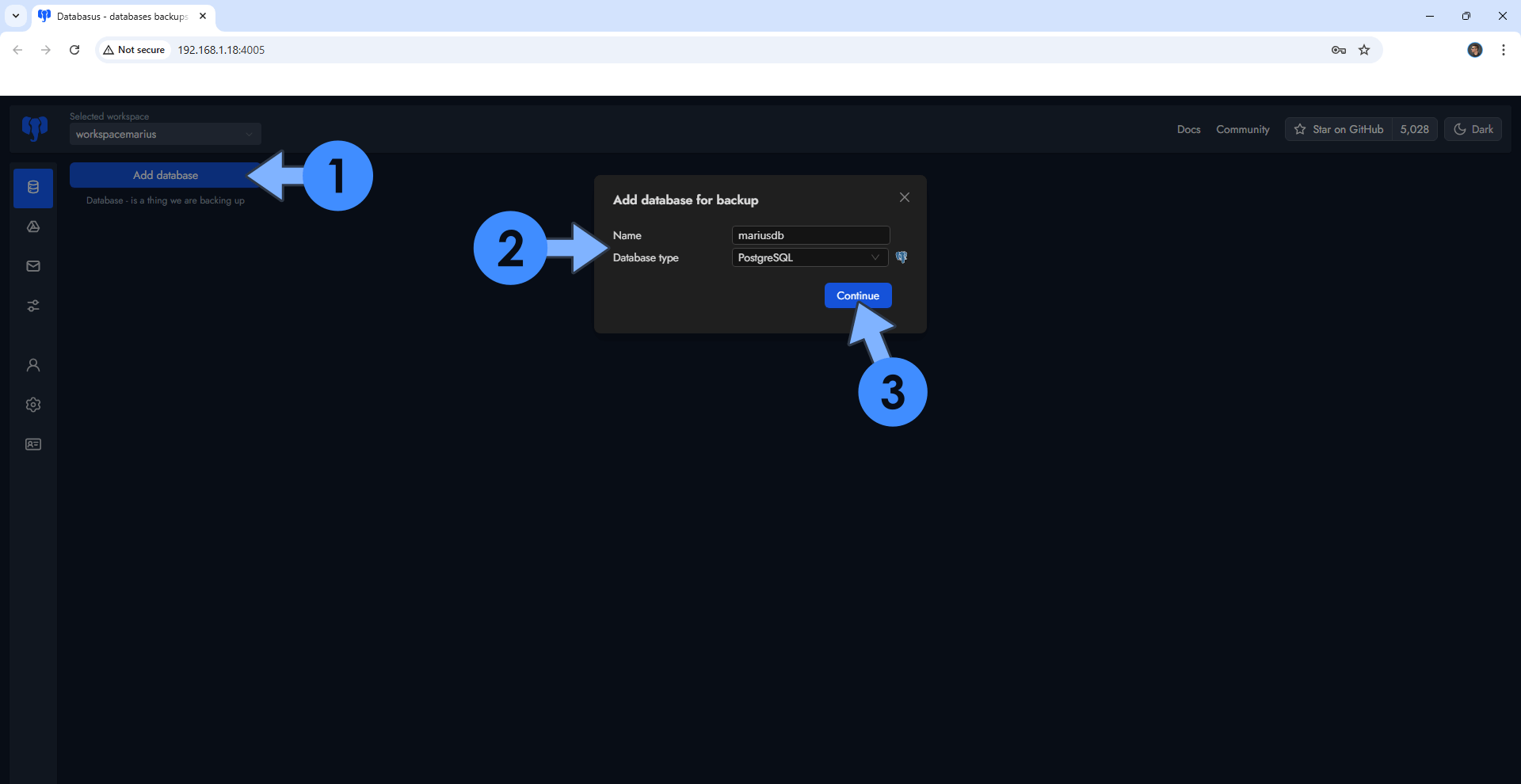
STEP 12
Add the following data:
Host: PostgreSQL
Port: 5432
Username: root or the username (POSTGRES_USER) that you have previously added at STEP 5.
Password: mariushostingroot (POSTGRES_PASSWORD) or the password that you have previously added at STEP 5.
DB name: marius_DB or the (POSTGRES_DB) name that you have previously added at STEP 5.
Click Test connection. Follow the instructions in the image below.
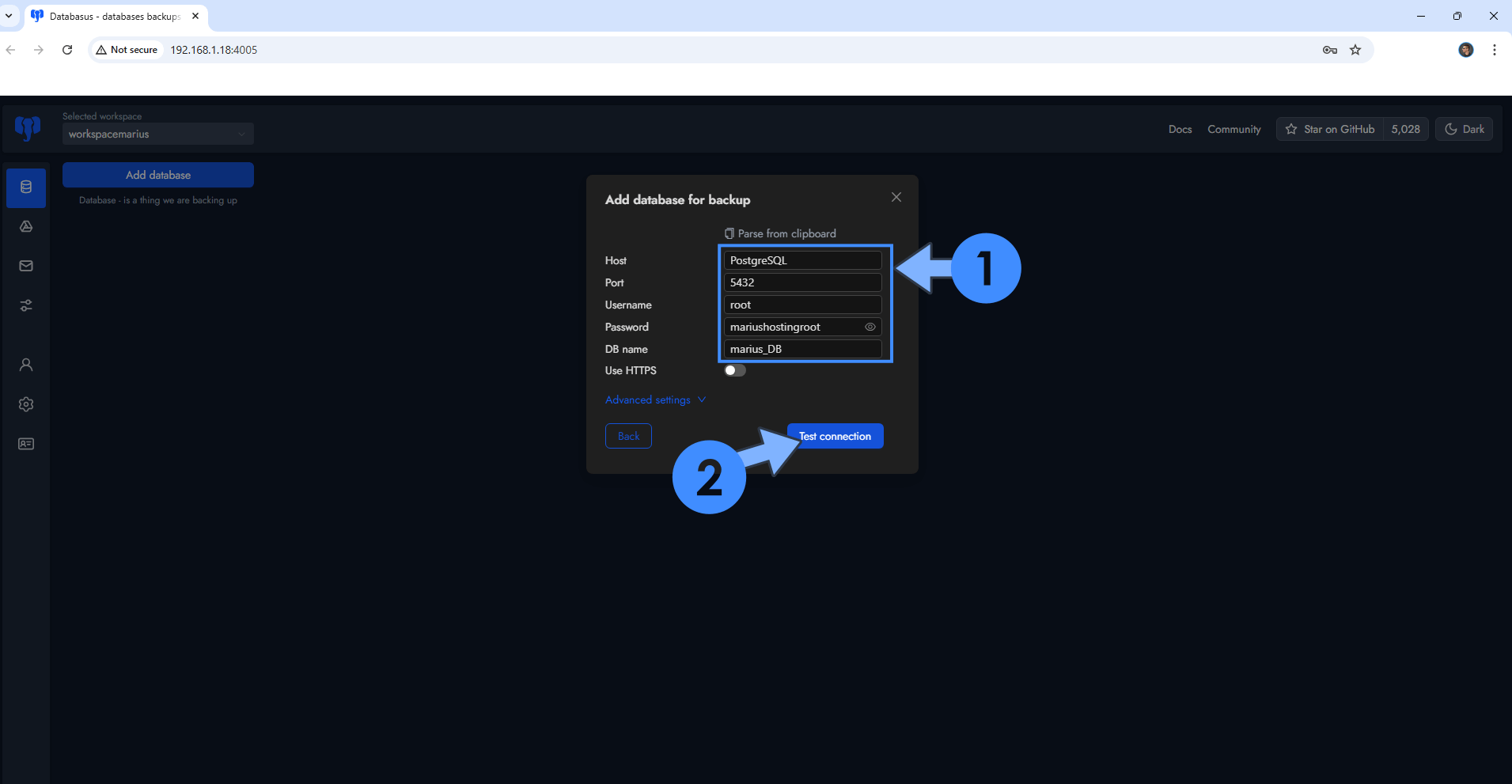
STEP 13
Click Continue. Follow the instructions in the image below.
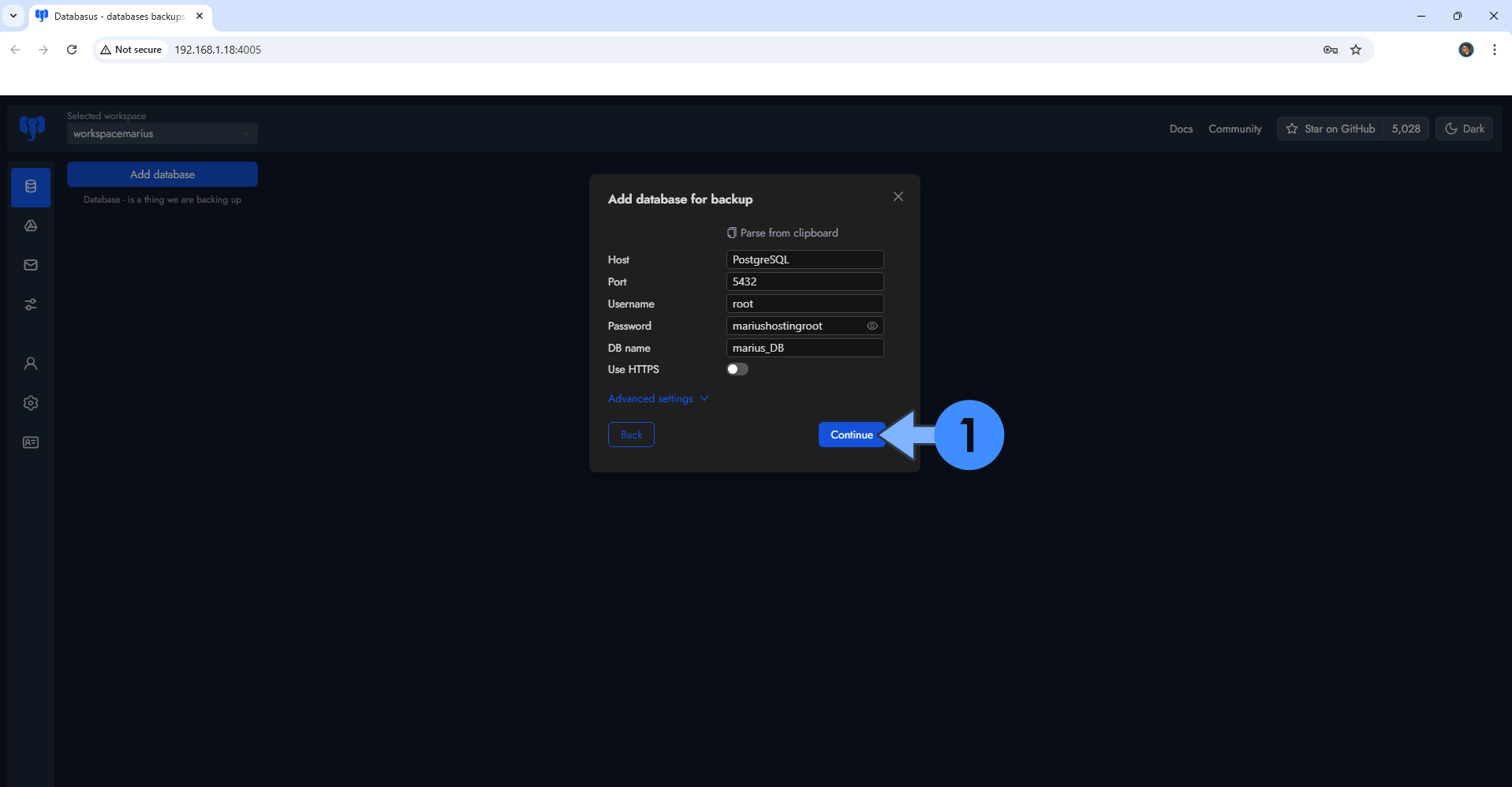
STEP 14
Click Yes, create read-only user. Follow the instructions in the image below.
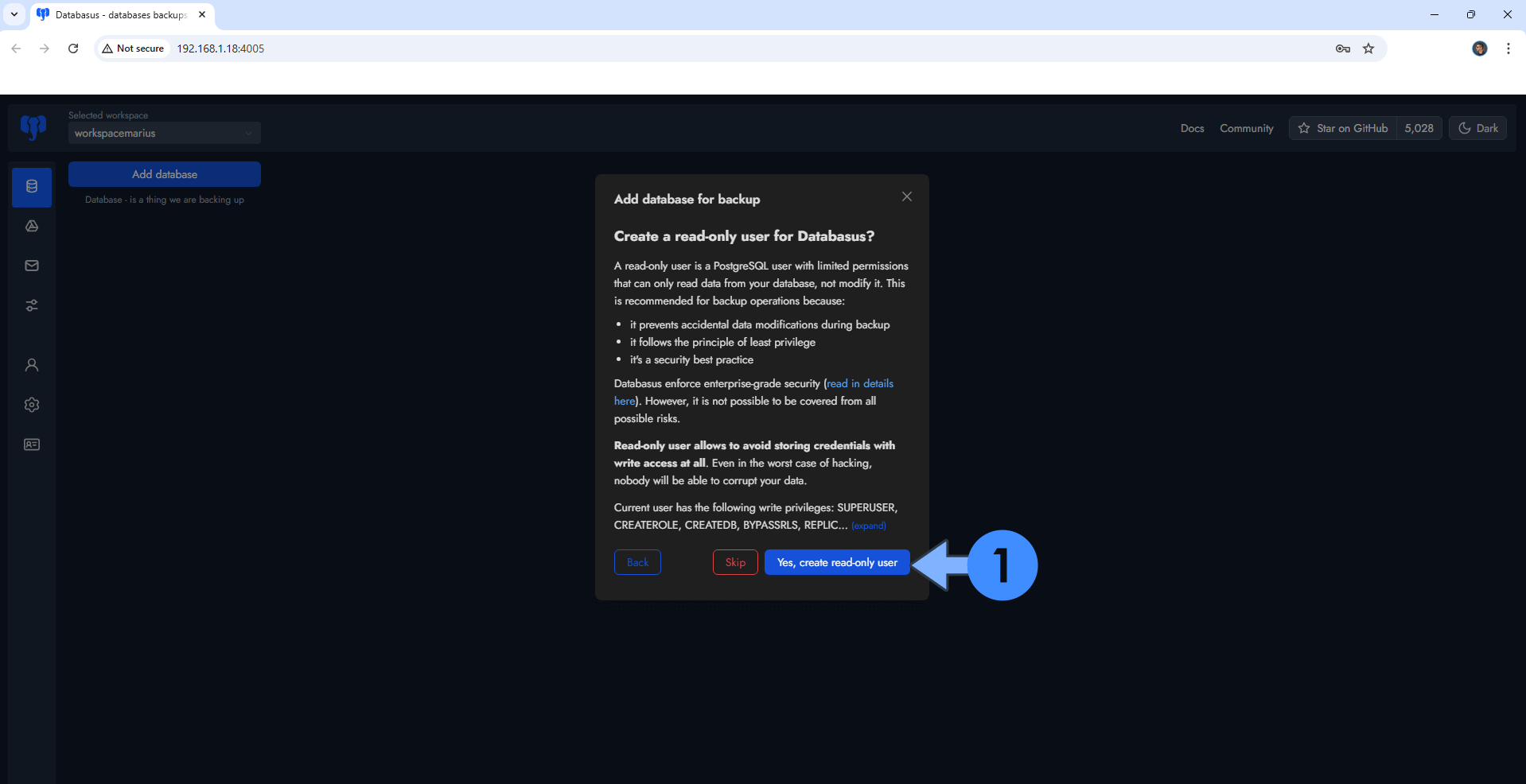
STEP 15
Click Create new storage. Follow the instructions in the image below.
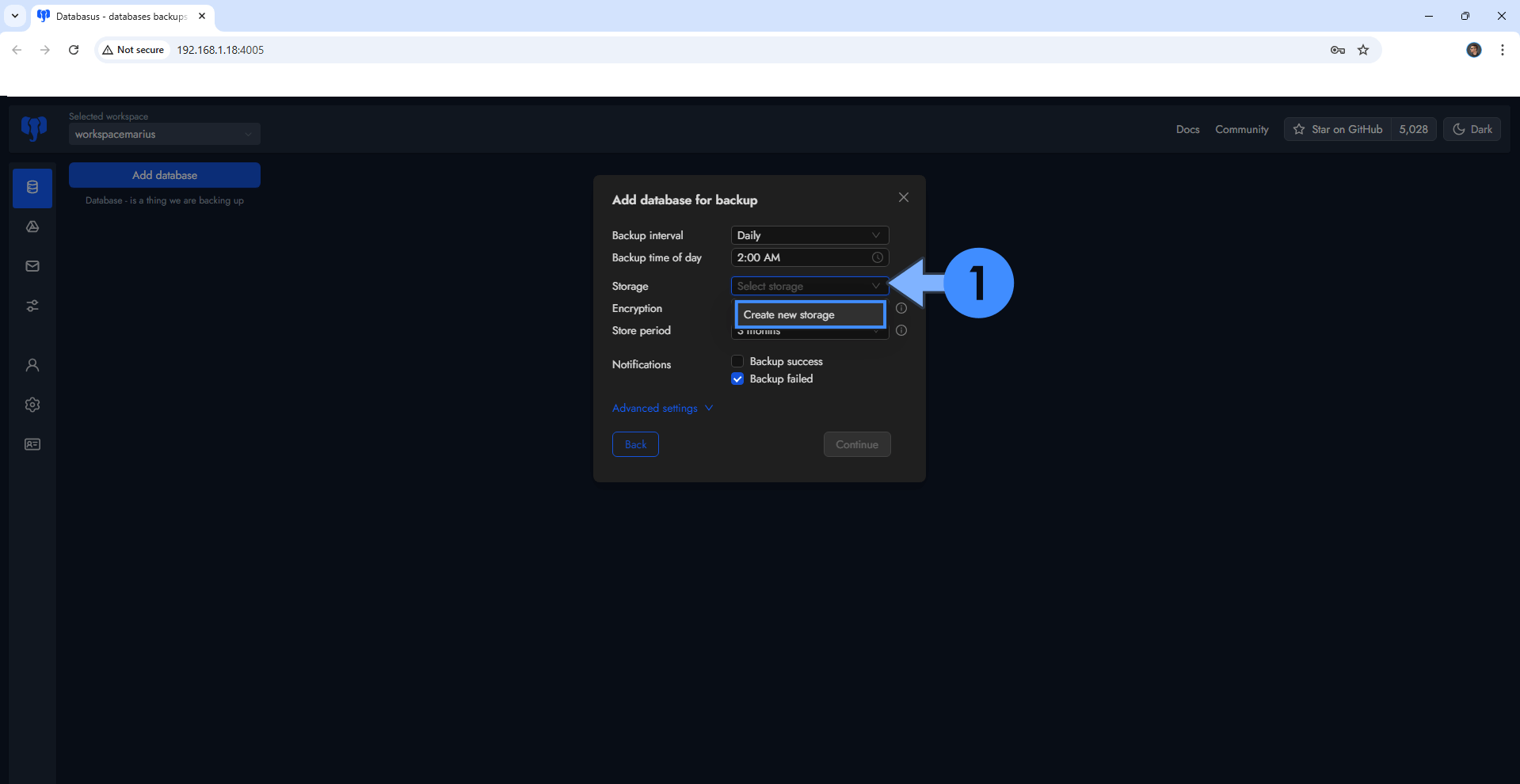
STEP 16
Type in a name for the storage. Select Local storage. Click Test connection. Follow the instructions in the image below.
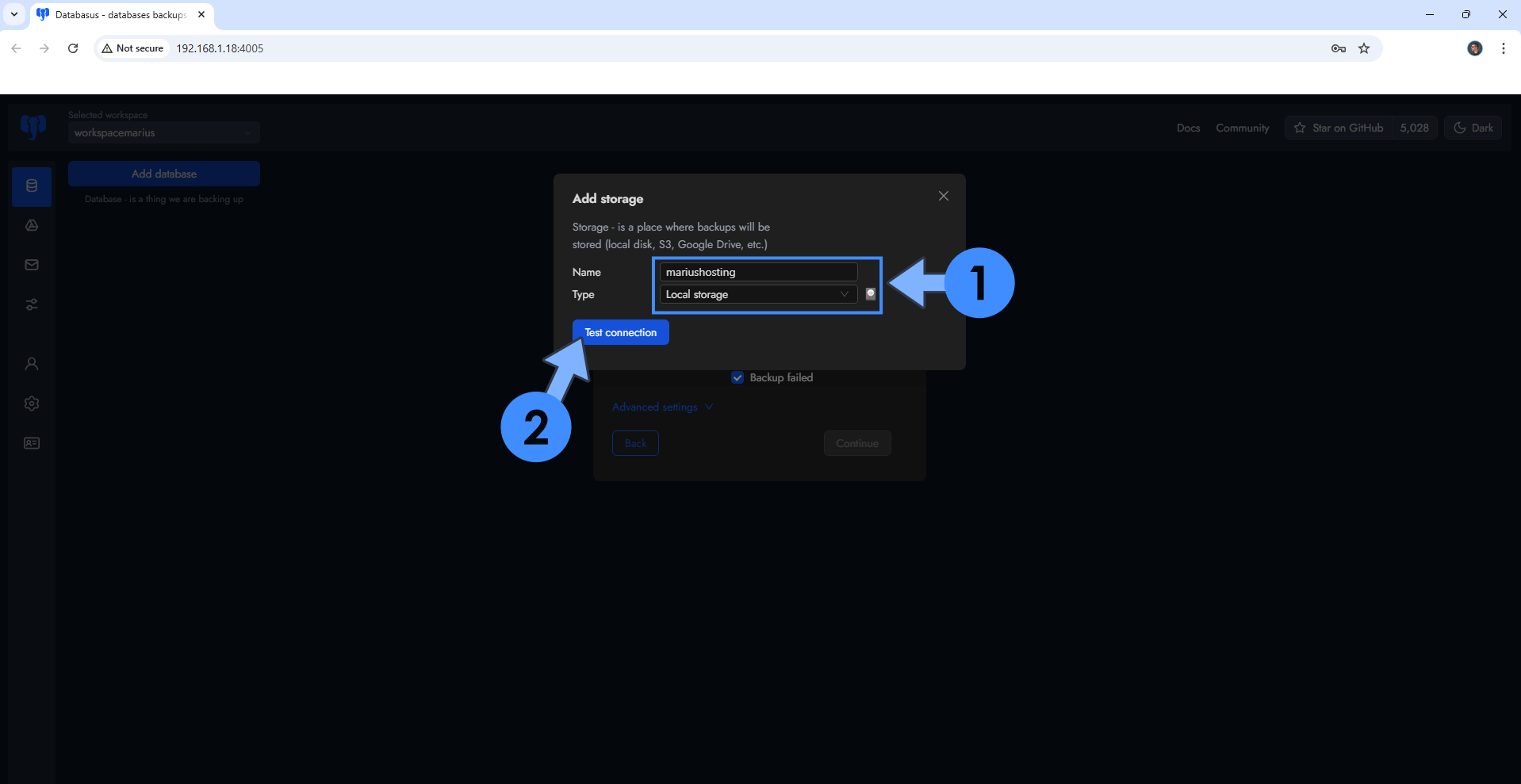
STEP 17
Click Save. Follow the instructions in the image below.
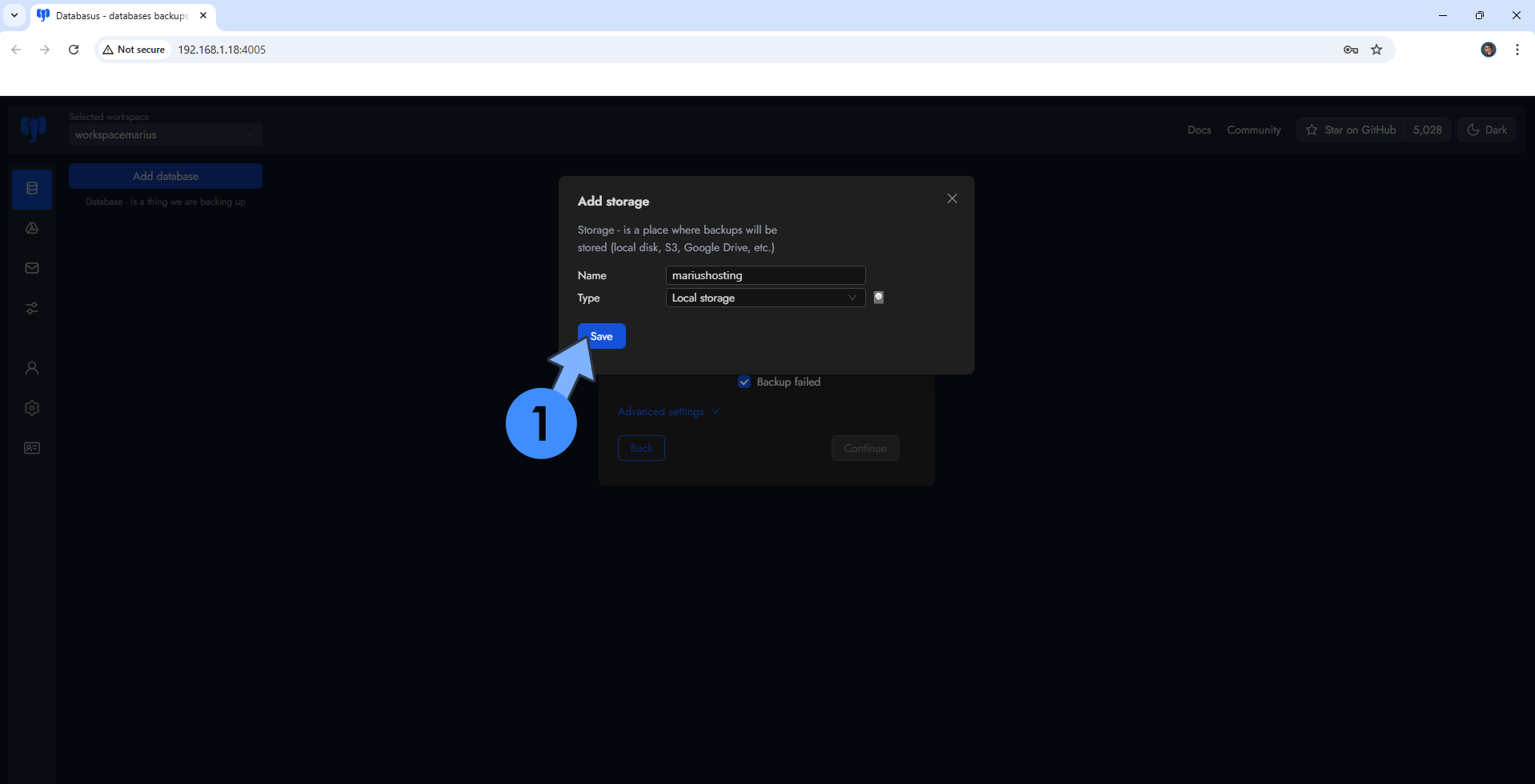
STEP 18
Select the storage that you have previously created at STEP 17. Click Continue. Follow the instructions in the image below.
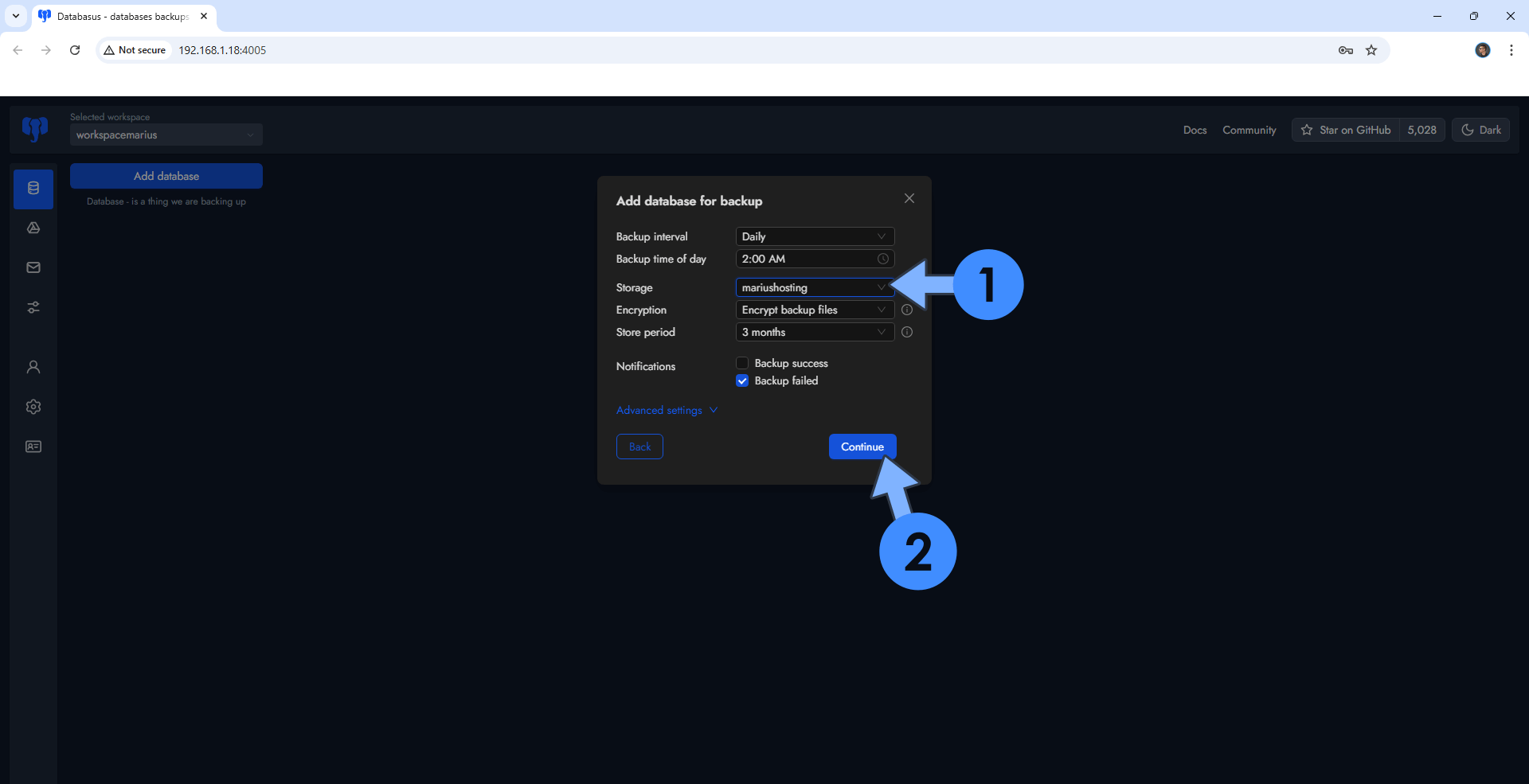
STEP 19
Click Complete. Follow the instructions in the image below.
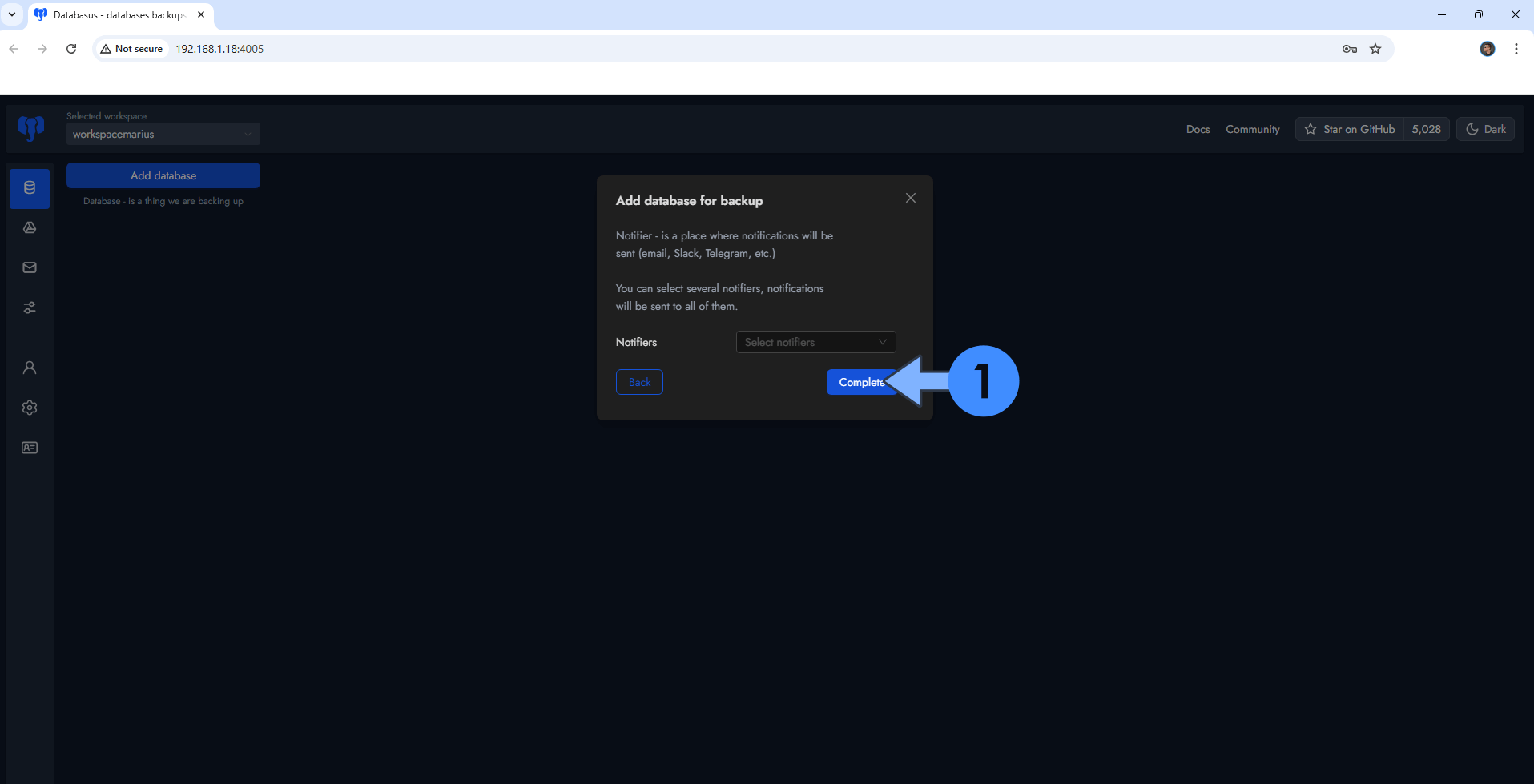
STEP 20
Your backup is now in progress!
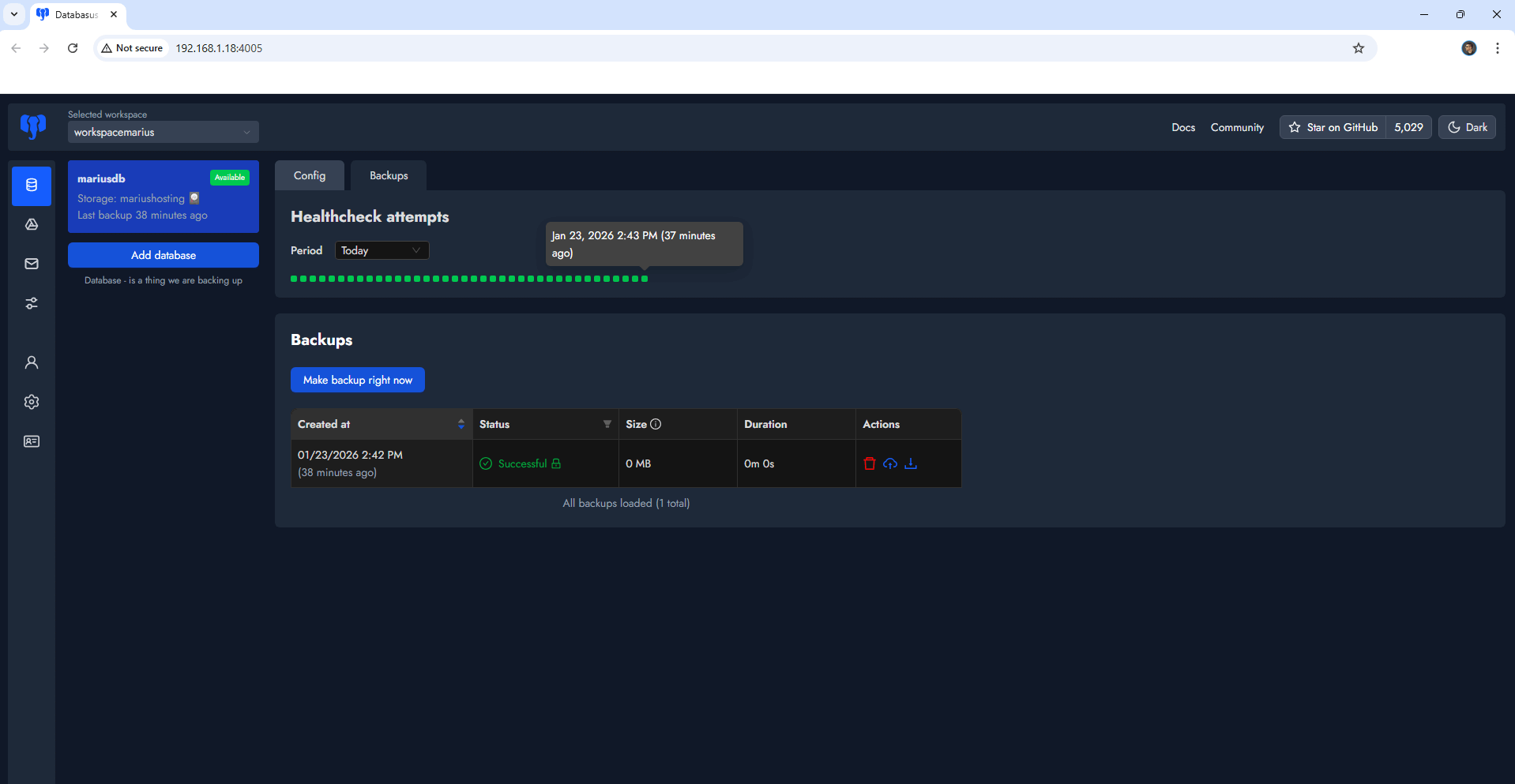
Enjoy Databasus!
Note: If you want to run the Databasus container over HTTPS, check How to Run Docker Containers Over HTTPS. In order to make Databasus work via HTTPS, it’s mandatory to activate WebSocket.
Note: Can I run Docker on my Synology NAS? See the supported models.
Note: How to Back Up Docker Containers on your Synology NAS.
Note: Find out how to update the Databasus container with the latest image.
Note: How to Add USB Support on DSM 7.2.
Note: How to Free Disk Space on Your NAS if You Run Docker.
Note: How to Schedule Start & Stop For Docker Containers.
Note: How to Activate Email Notifications.
Note: How to Add Access Control Profile on Your NAS.
Note: How to Change Docker Containers Restart Policy.
Note: How to Use Docker Containers With VPN.
Note: Convert Docker Run Into Docker Compose.
Note: How to Clean Docker.
Note: How to Clean Docker Automatically.
Note: Best Practices When Using Docker and DDNS.
Note: Some Docker Containers Need WebSocket.
Note: Find out the Best NAS Models For Docker.
Note: Activate Gmail SMTP For Docker Containers.
This post was updated on Monday / February 16th, 2026 at 12:47 AM
